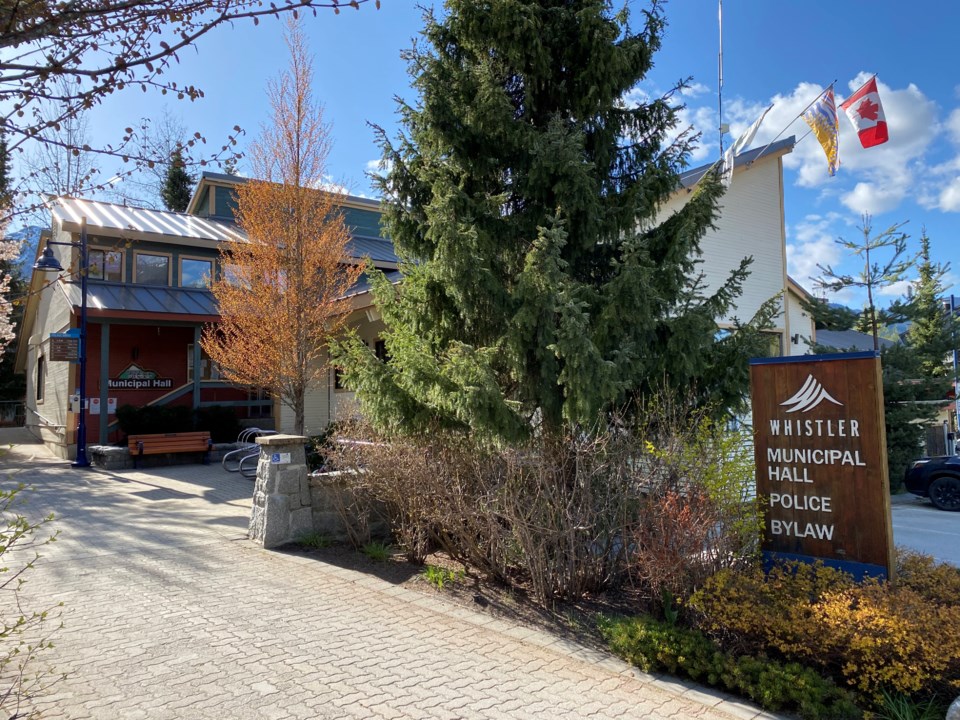The Resort Municipality of Whistler (RMOW) is paring down its long list of committees.
Whistler’s mayor and council voted on Tuesday night, Sept. 26, to endorse a set of recommendations laid out in the Committee of Council Review Project’s latest report. Elected officials agreed with the project’s pronouncement that Whistler has too many committees, with mandates that are too narrow in scope—instead, the RMOW should host a smaller number of committees focused on broader topics aligning with council’s current priorities.
To that end, council directed municipal staff to get to work implementing those recommendations, including disbanding a pair of committees that have completed the work they set out to achieve.
Council’s endorsement is the latest step in an in-depth review of the Committees of Council program the Governance and Ethics Committee of Council (GECC) formally launched over the winter. Whistler’s last elected council previously highlighted a need to take a hard look at the Committee of Council program during its 2019-2020 Community Engagement Review project.
Essentially, the committee review project is using data to identify what works, and what needs improvement, explained project lead Erin Marriner, a staffer from the RMOW’s legislative services department.
“Committees utilize a lot of council and staff resources, as well as staff time of external organizations and time of community members, so there is a desire to ensure this resource commitment is aligned with the value committees provide to the RMOW and to council decision making,” Marriner said in a project progress update she presented to elected officials in August. “We also want to develop a consistent framework for the Committee of Council program in terms of purpose, when a committee may be required, streamline some of the administration, recruitment—those types of things.”
Prior to Tuesday’s meeting, the RMOW counted 20 different committees, covering topics ranging from Whistler bears and May long weekend to transportation and economic partnerships. The RMOW has more committees than its local government counterparts in Squamish, West Vancouver, North Vancouver, Port Coquitlam, Victoria, and Tofino, Marriner pointed out on Sept. 26.
Committees exist to advise Whistler’s elected officials about strategy and policy. Each includes municipal staff and appointed councillors, as well as resort stakeholders and community members appointed to serve as volunteers. Typically, those individuals are tapped to bring their local knowledge, expertise and experience to a “specific area of civic concern.” Each committee meeting is subject to an official set of rules laid out in Whistler’s Community Charter and the Council Procedure Bylaw.
Working groups, on the other hand, similarly include community members who volunteer to advise council about a particular topic, but focus more on collaboration and informational updates, and aren’t beholden to the same strict rules or requirements as committees.
“Something that’s been highlighted through this process is the importance of using the correct tool for what council’s working to achieve, and the input and information they’re seeking,” Marriner said.
As part of the months-long review project, RMOW staff gathered feedback from committee members and staff through surveys and interviews to inform a list of 10 themes staff outlined as key findings in the Sept. 26 report.
The report acknowledges the committee program shouldn’t be scrapped entirely. Instead, it offers a long list of suggestions related to each of those 10 themes to improve the existing program, such as reviewing and reducing committee topics; clarifying committee members’ roles and responsibilities; and reviewing committee membership with diversity in mind, to name just a few.
Council ultimately supported the GECC’s recommendations to disband the existing Mayor’s Task Force on Resident Housing and Public Art Committee, and shift the May Long Weekend, Technology Advisory, Transit Management Advisory, Zero Waste, and Whistler Bear Advisory committees into working groups.
The GECC also suggested amalgamating other committees with overlapping focus areas into four new committees: housing and strategy; climate action; community engagement; and smart tourism.
Councillors opted to remove community engagement from that list, after RMOW staff offered assurance community engagement would pop-up continuously as it relates to other committee topics. Councillors debated whether to support a staff proposal to transition the existing Emergency Planning Committee to a working group, but cited incoming provincial legislative changes and increasing climate threats as reasons to maintain the committee’s more formal structure for the time being.
Now, RMOW staff will start building a list of project outputs based on the recommendations council approved Sept. 26, including a training and onboarding program; a recruitment strategy, a committee of council framework document; plus an inclusion and diversity strategy. Those outputs will come back to council at a later date before they can be implemented and the project can officially wrap up.
Councillor Cathy Jewett congratulated staff on the report.
“This is an amazing project,” she said. “It was daunting when we started out—it still is pretty daunting, there’s still a lot of work to do, but thank you for getting us to this point.”




